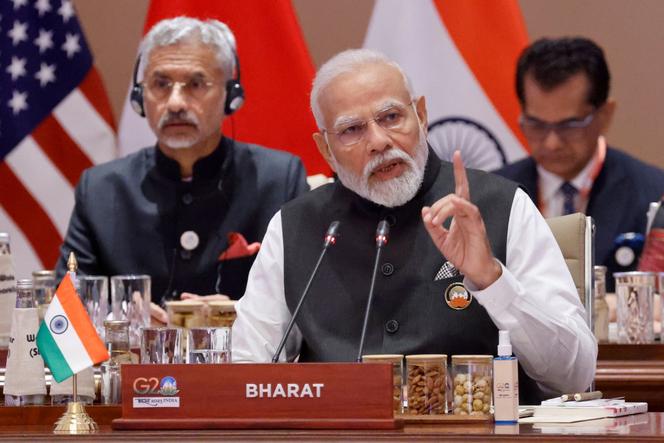

LETTER FROM NEW DELHI

Le Monde's South Asia correspondent, who signed this letter, may well one day be based in Bharat, the name Narendra Modi has chosen for India. The prime minister made the change somewhat official by taking the world's leaders as witnesses at the G20 summit in New Delhi on September 9 and 10. He appeared behind a plaque, and then a lectern, bearing the Sanskrit word "Bharat." Invitations sent out by Head of State Droupadi Murmu, for a dinner on the sidelines of the summit, were also signed "President of Bharat." True to his strategy of silence, Modi offered no explanation, leaving commentators to speculate on the potential developments.
Since independence in 1947, Indian governments of various persuasions have undertaken to rename cities named by the British colonists. In 1995, Bombay became Mumbai, Madras became Chennai, Calcutta became Kolkata, and Pondicherry became Puducherry. Benares changed to Varanasi as early as 1956. But the coming to power of Hindu nationalists in 2014 has considerably amplified this process. The aim now is to Hinduize cities, streets and monuments, in order to erase the colonial past as a whole – almost 12 centuries of history. India lived under Muslim rule, and then under British domination until 1947.
By 2018, more than 25 cities had undergone this process. Allahabad, a major Hindu pilgrimage site at the confluence of the Ganges and Yamuna rivers in Uttar Pradesh, was transformed into Prayagraj, to get rid of its Islamic heritage and reconnect it with its Hindu roots. In New Delhi, the very symbol of the Indian Empire, the Rajpath – a famous and majestic avenue designed by architect Edwin Lutyens – was renamed. Since September 8, 2022, this "alley of the Empire" has been called Kartavya Path, the "Path of Duty." In the same area, Race Course Road now has a Hindi name, Lok Kalyan Marg, the "Public Service Street." This road is of importance, with Modi's official residence at number seven.
The prime minister's initiative has no legal force. Changing the country's name requires a two-thirds majority vote on a constitutional amendment by both houses of the parliament. This founding text begins with "We, the people of India" and stipulates that "India, that is Bharat, shall be a union of states." In June 2020, the Supreme Court, which oversees compliance with the Constitution, rejected an appeal to retain only "Bharat" in the Constitution.
In support of their claim, Hindu nationalists maintain that the name India was given by British colonizers, and that adoption of "Bharat" would enable the nation to rid itself of all traces and links with colonialism. Historians, however, have shown that the term predates the British era.
You have 43.57% of this article left to read. The rest is for subscribers only.
